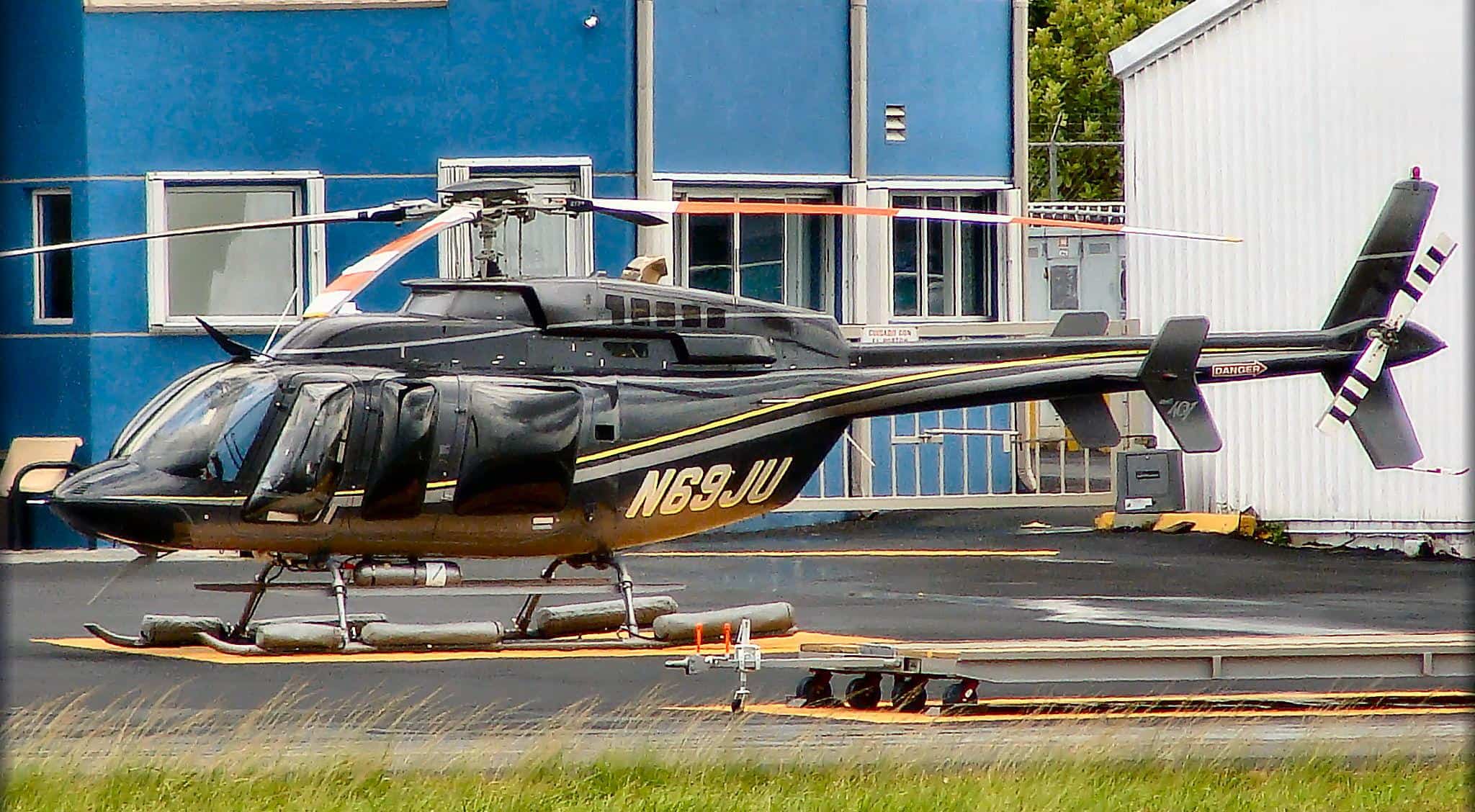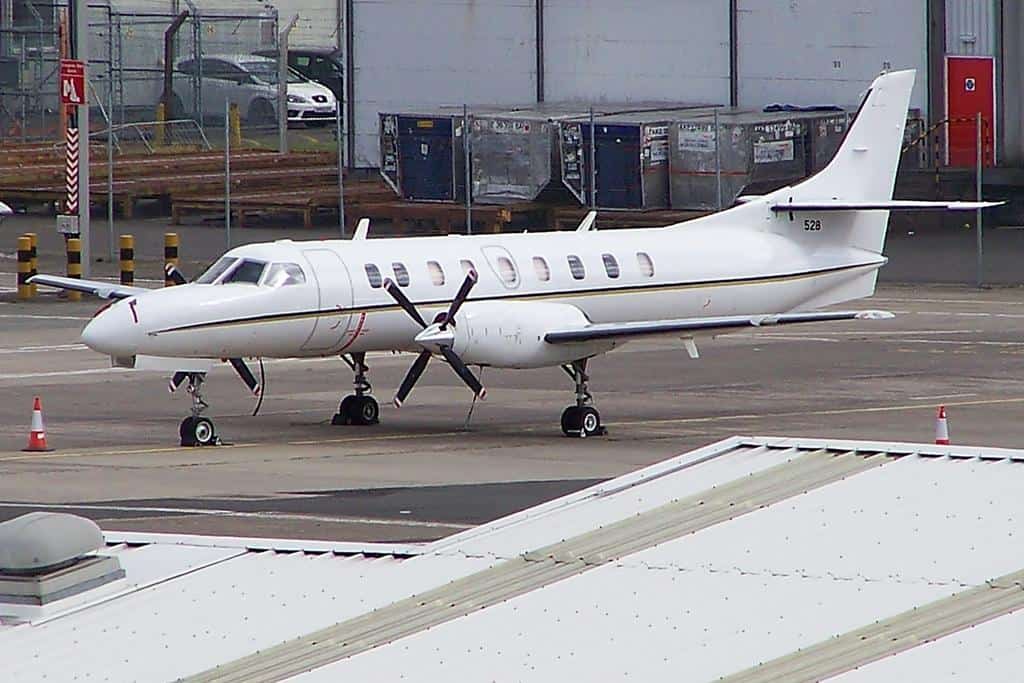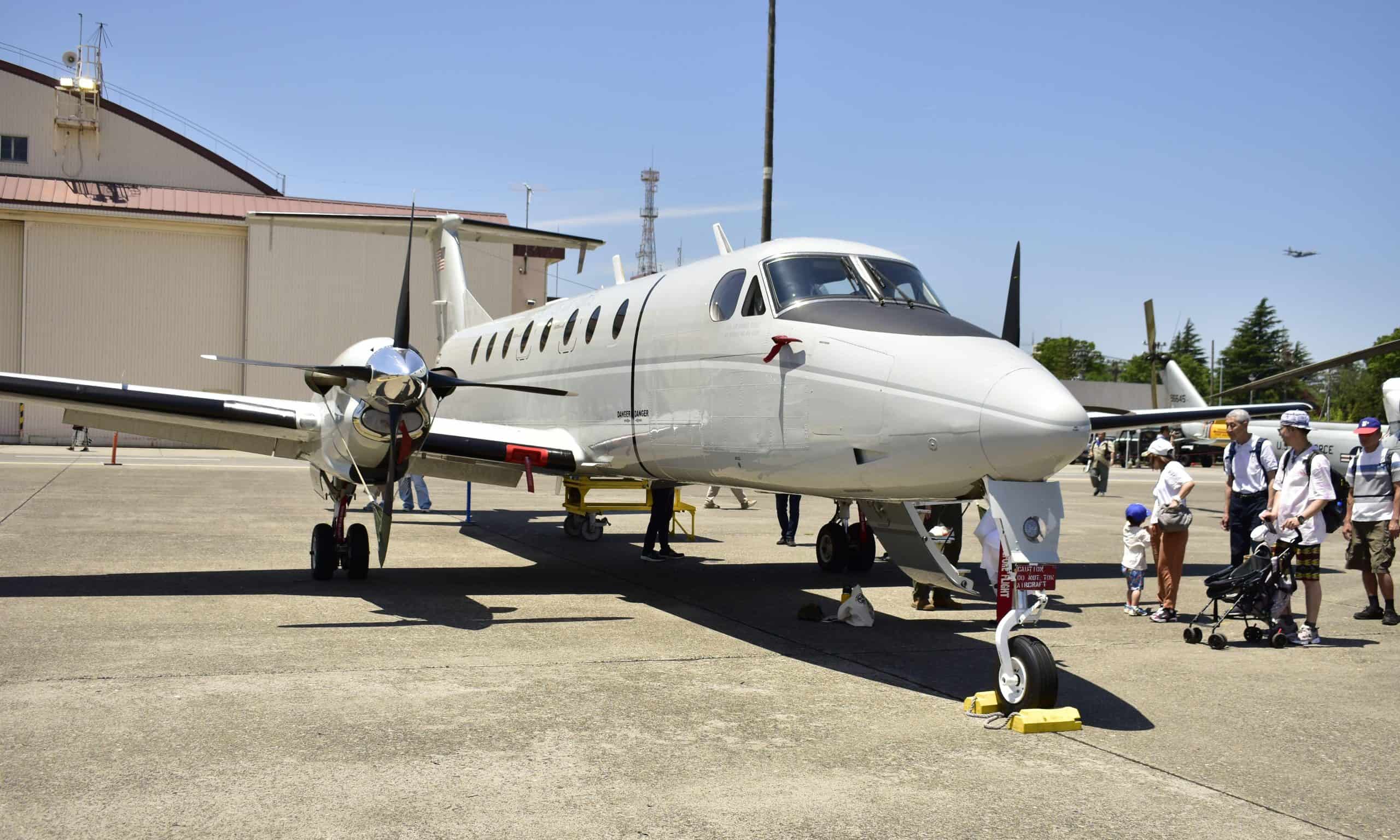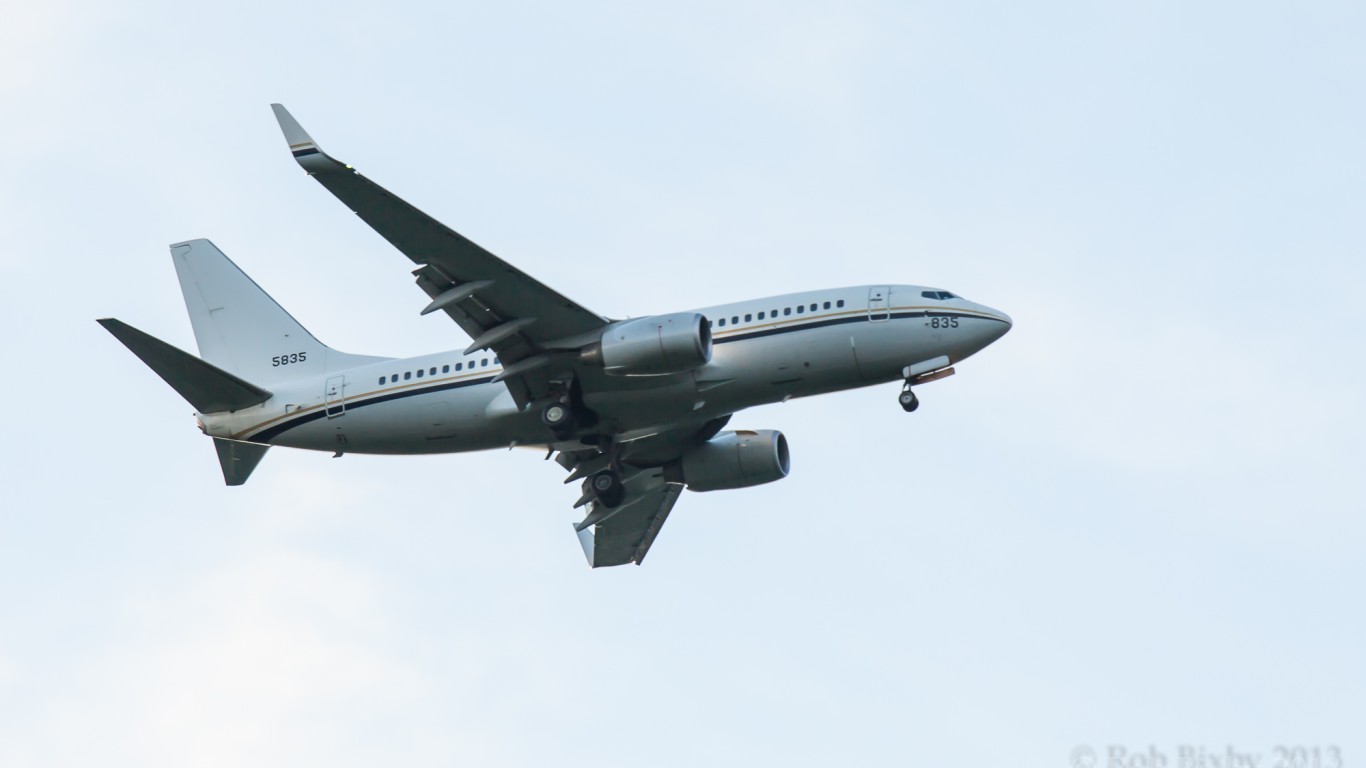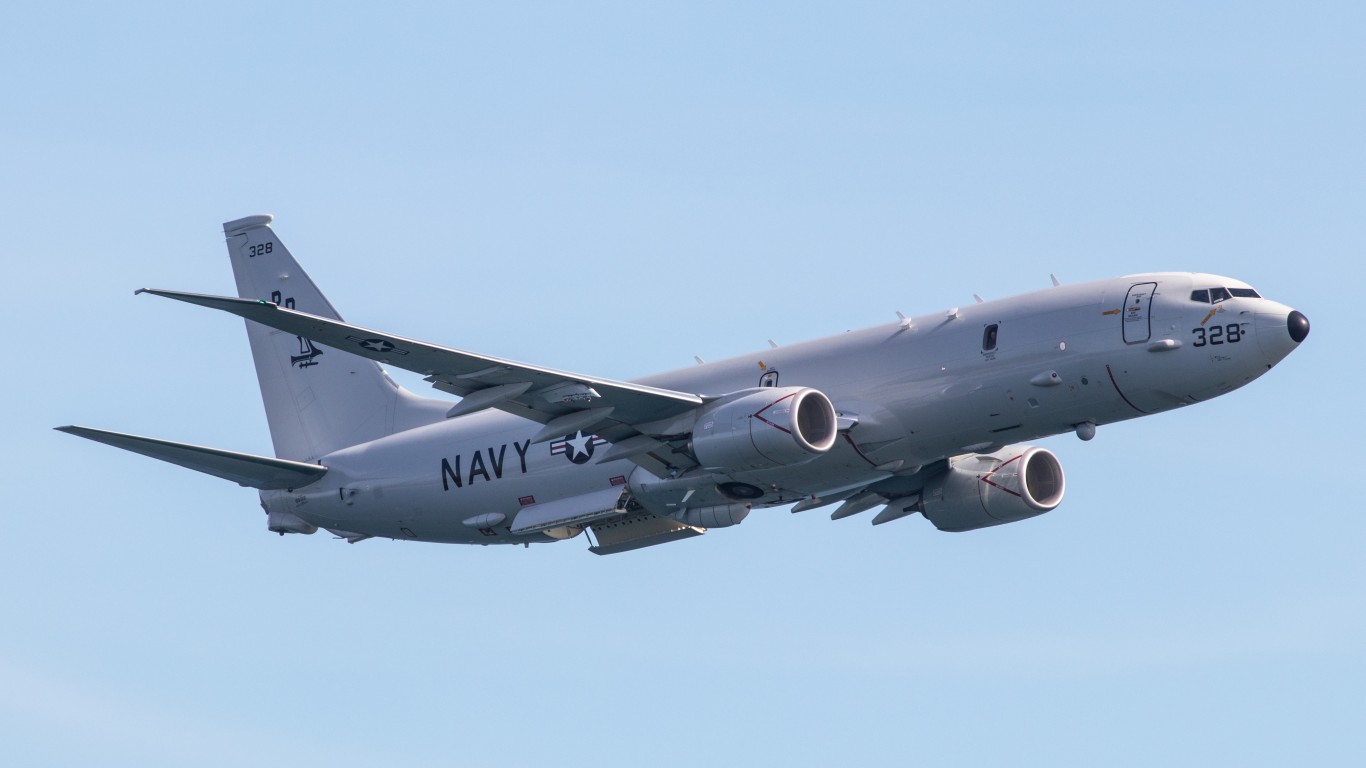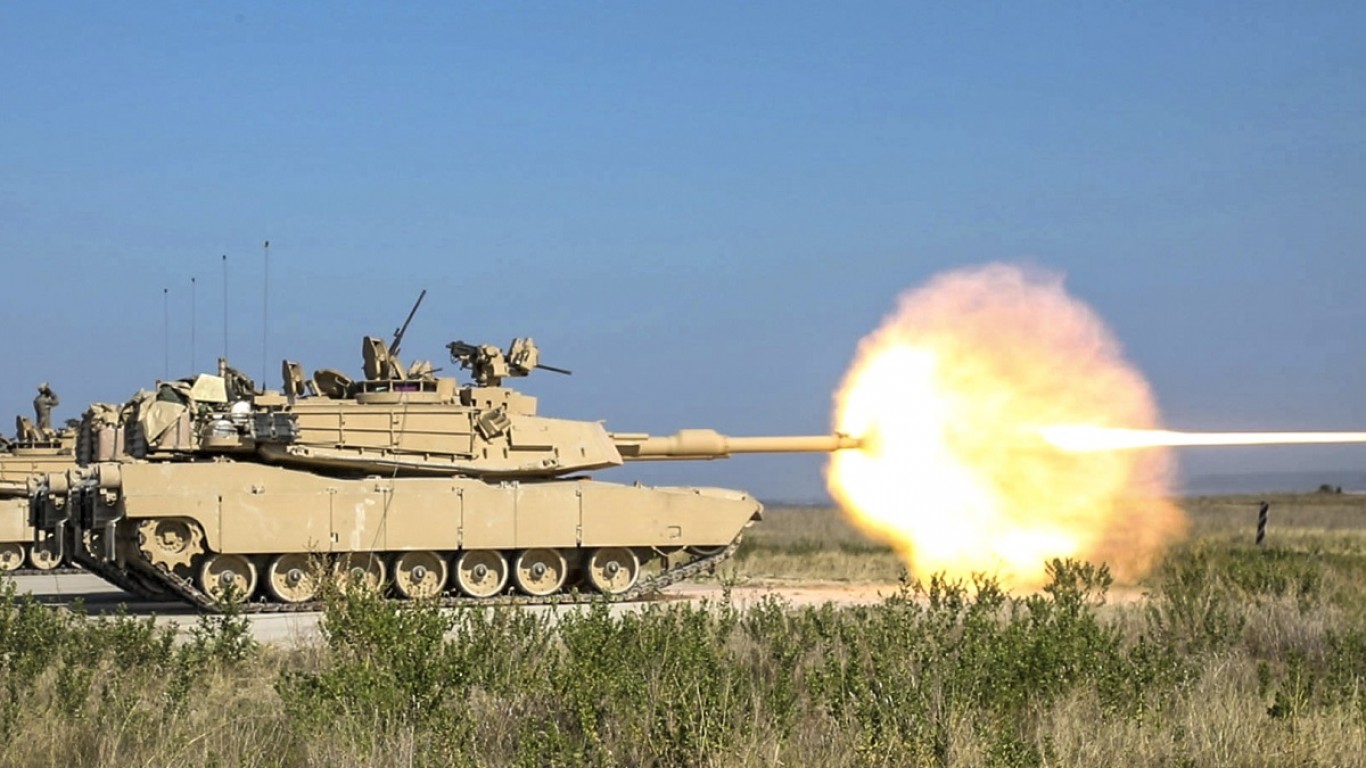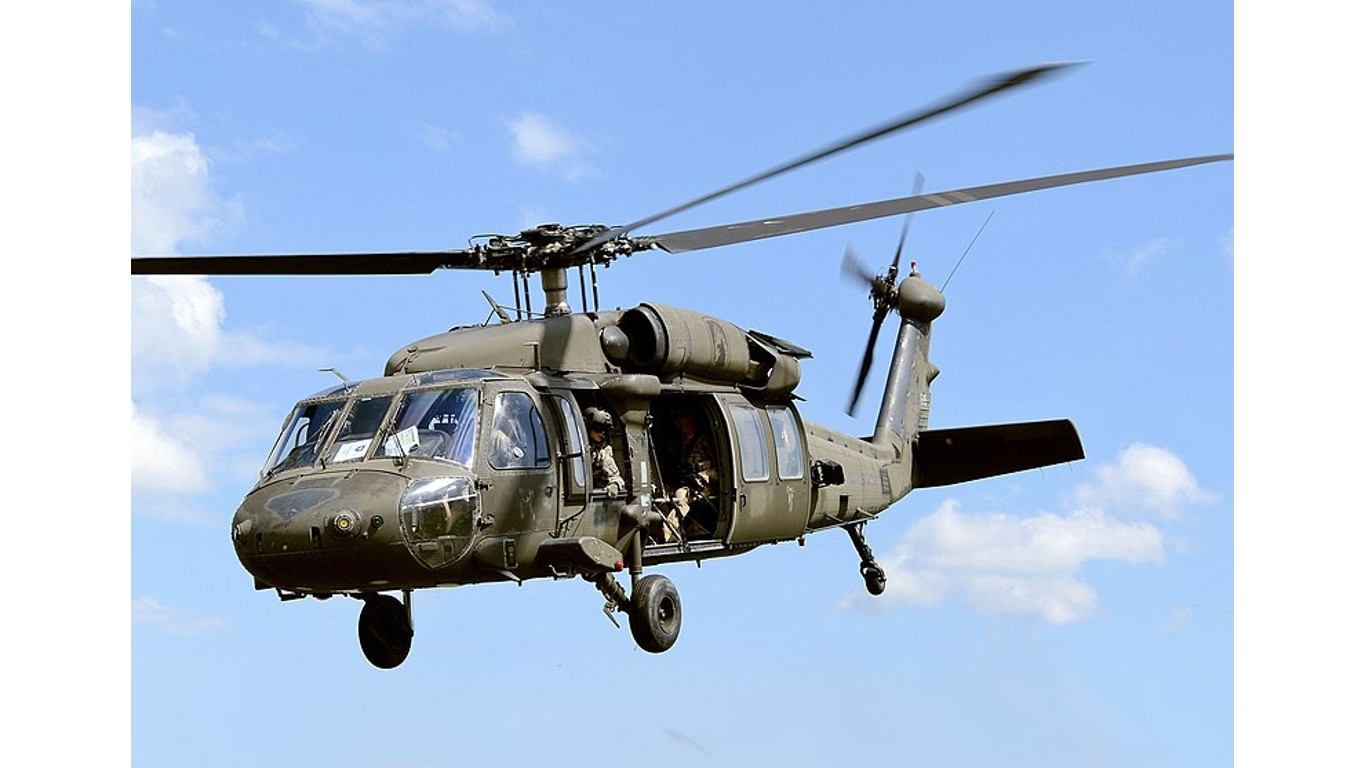
24/7 Wall St. Insights:
- The Black Hawk helicopter is the single-most widely flown aircraft by the U.S. Navy, including multiple variants
- It was originally developed by Sikorsky in the 1970s and introduced to the military in 1979
- One of the main models is the MH-60 Seahawk, which features T700-GE-401C engines that allow for top speeds over 180 mph
- Also: Dividend legends to hold forever
When considering the massive fleet of aircraft employed by the U.S. Navy, it may come as a surprise that the most widely flown aircraft is not a fighter jet or logistical plane, but instead the Black Hawk helicopter series. These are by far the most widely flown aircraft by the U.S. military as a whole, tried and true, Black Hawk helicopters make up the backbone of the U.S. military.
Originally developed by Sikorsky in the 1970s and introduced to the military in 1979, the Black Hawk was designed as a tactical transport helicopter. It quickly distinguished itself with its ability to perform in a variety of roles, from troop deployment to medevac operations, even combat roles. (Every American gunship helicopter that fought the Vietnam War.)
The Navy specifically has several variants tailored to its particular uses. One of the main models is the MH-60 Seahawk. This one was developed, like its name suggests, for maritime operations. It is equipped with advanced sensor systems that help in its primary roles of surface warfare and reconnaissance.
The Seahawk is powered by T700-GE-401C engines, which allow for top speeds over 180 mph. Also, it is capable of equipping a variety of weapons including torpedoes and anti-ship missiles. (These are the fastest gunship helicopters of the modern era.)
Although the Navy’s fleet is marked by extensive use of fighter jets and transport aircraft, the Black Hawk is the single most widely flown aircraft. 24/7 Wall St. is taking a closer look at the aircraft within the Navy’s arsenal.
To identify every aircraft flown by the U.S. Navy, 24/7 Wall St. reviewed data from the 2024 World Air Forces report from FlightGlobal, an aviation and aerospace industry website, and ranked the aircraft according to how many are in active service. Additionally, we’ve included supplemental information on the type of aircraft, how many are in active service, top speed and armament. We have excluded all trainer aircraft.
Here is a look at every aircraft in the U.S. Navy:
Why Are We Covering This?
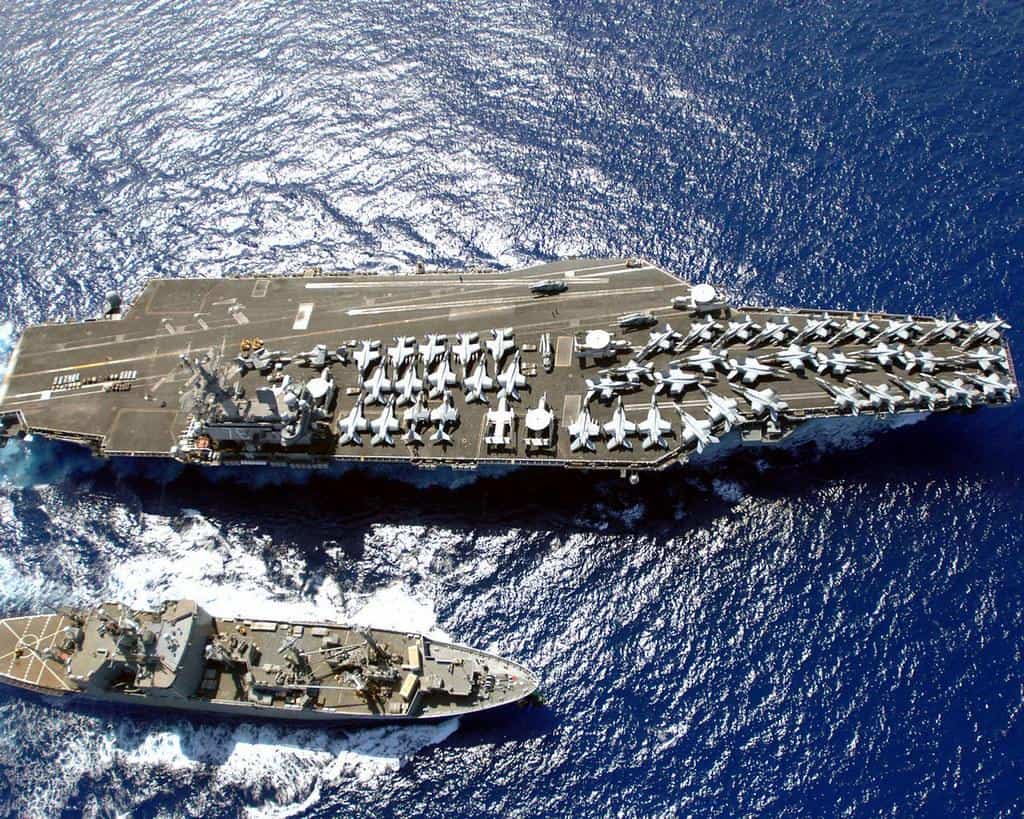
24/7 would like our readers to understand where their tax dollars are being spent. The Navy received $202.6 billion in government funding in 2024, second only to the Air Force at $216.1. billion. In fiscal year 2025, the Navy has requested $16.6 billion of its funding to purchase 75 aircraft and helicopters, which is actually slightly less than in 2024.
18. C-20 Gulfstream IV

- Type: Military VIP passenger transport aircraft
- Year introduced: 1983
- Active aircraft: 2
- Top speed: 582 mph
- Armament: N/A
17. Bell 407
- Type: Light utility helicopter
- Year introduced: 1996
- Active aircraft: 5
- Top speed: 162 mph
- Armament: N/A
16. C-26D Metroliner
- Type: Transport aircraft
- Year introduced: 2003
- Active aircraft: 8
- Top speed: 331 mph
- Armament: N/A
15. KC-130 Super Hercules
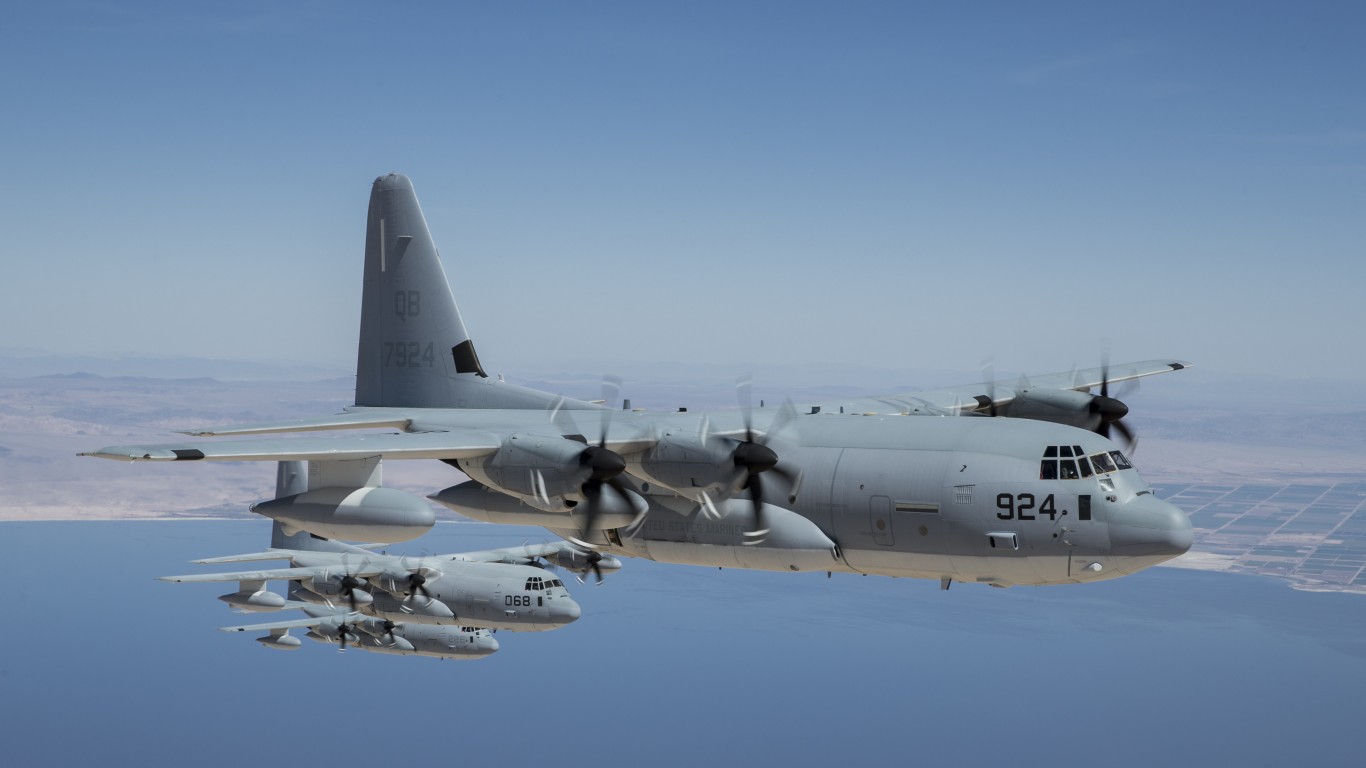
- Type: Aerial tanker / transport aircraft
- Year introduced: 1962
- Active aircraft: 11
- Top speed: 416 mph
- Armament: N/A
14. C-12 Huron
- Type: Special mission aircraft
- Year introduced: 1974
- Active aircraft: 13
- Top speed: 332 mph
- Armament: N/A
13. E-6B Mercury
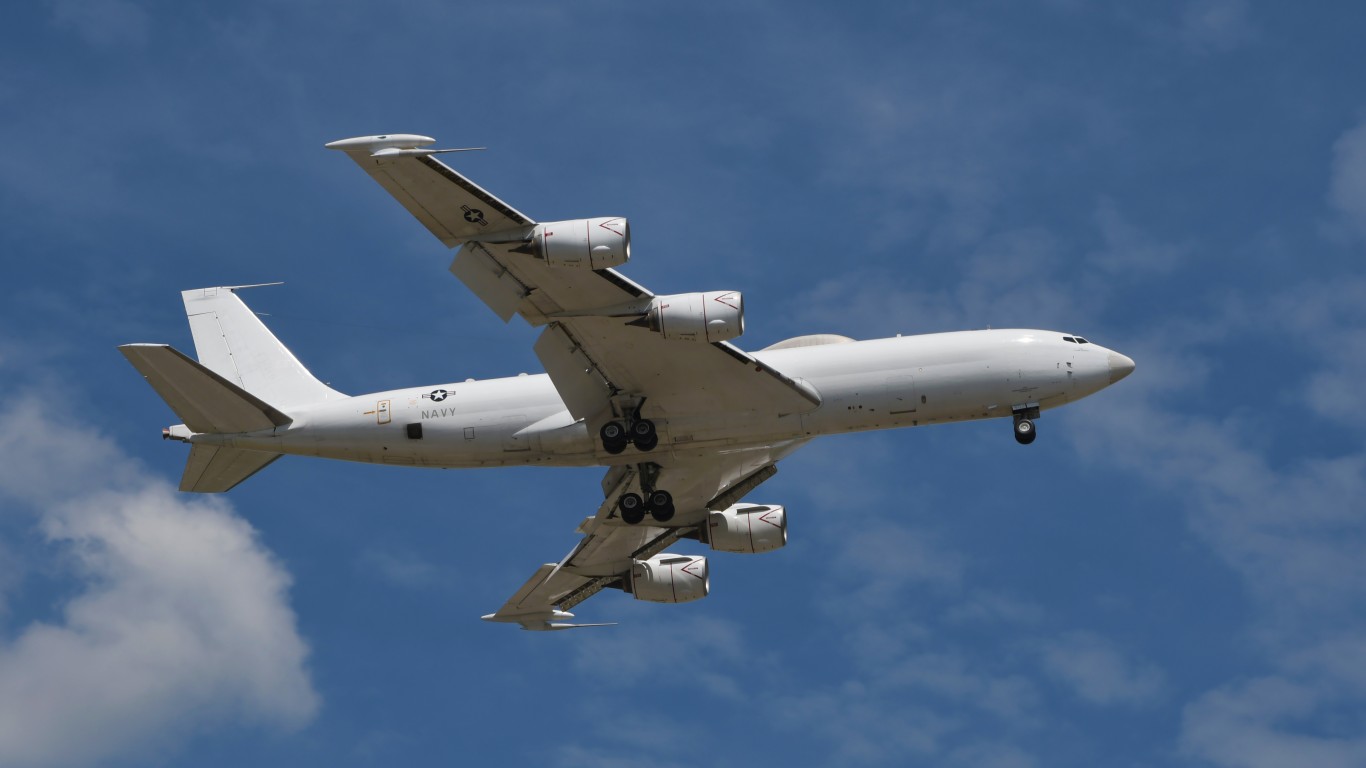
- Type: Airborne command post
- Year introduced: 1989
- Active aircraft: 16
- Top speed: 603 mph
- Armament: N/A
12. C-40 Clipper
- Type: Transport aircraft
- Year introduced: 2001
- Active aircraft: 17
- Top speed: 544 mph
- Armament: N/A
11. P-3 Orion
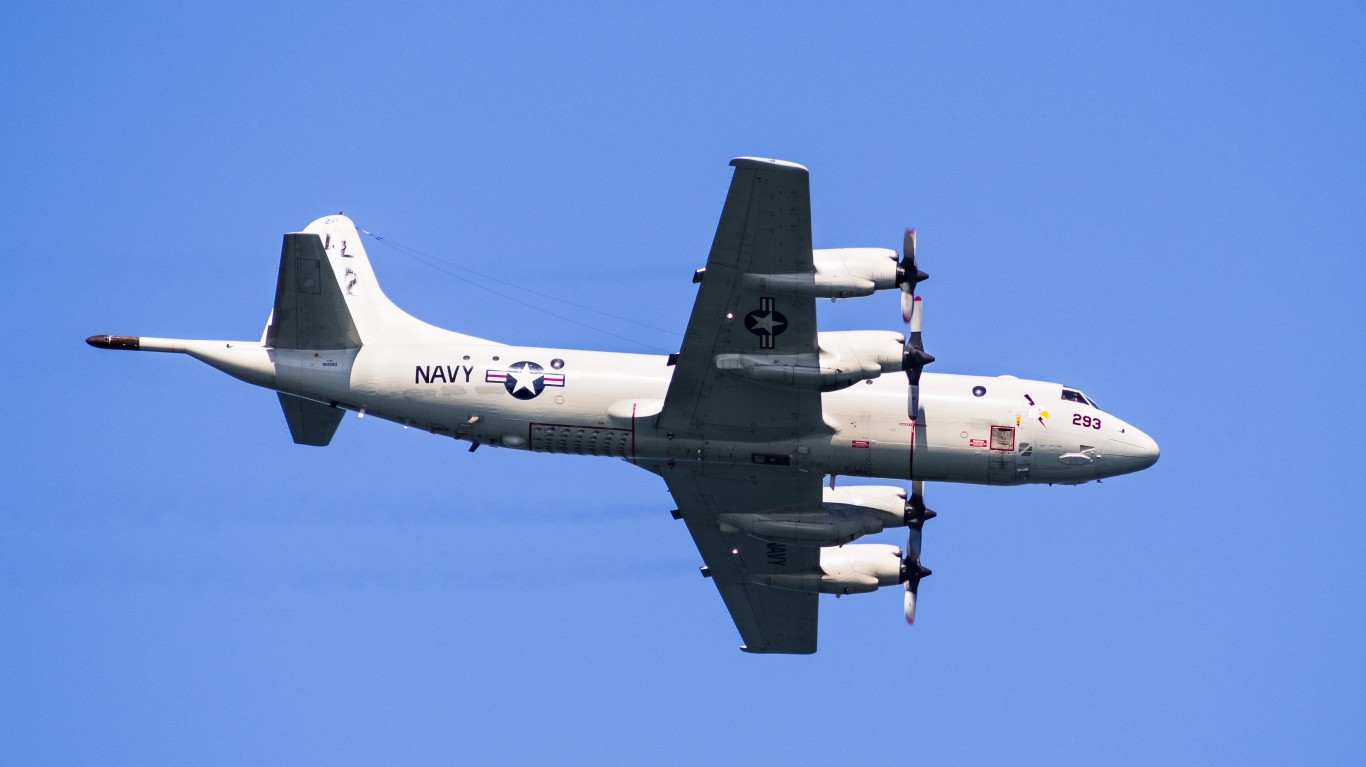
- Type: Multi-mission reconnaissance, anti-submarine aircraft
- Year introduced: 1962
- Active aircraft: 17
- Top speed: 466 mph
- Armament: Torpedoes, depth charges, Harpoon missiles, SLAM-ER missiles, Maverick missiles, naval mines, unguided rockets
10. C-130J Super Hercules
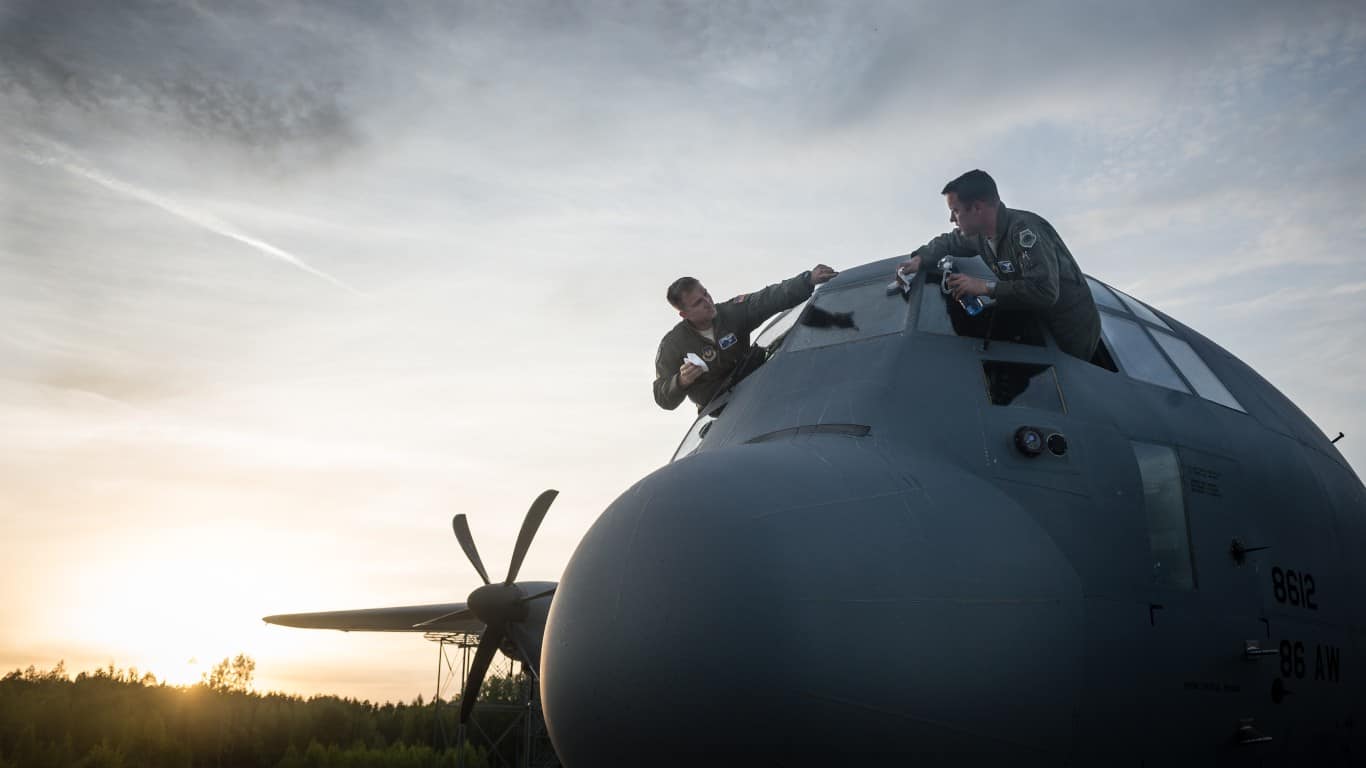
- Type: Tactical medium transport aircraft
- Year introduced: 1999
- Active aircraft: 18
- Top speed: 416 mph
- Armament: N/A
9. C-2 Greyhound
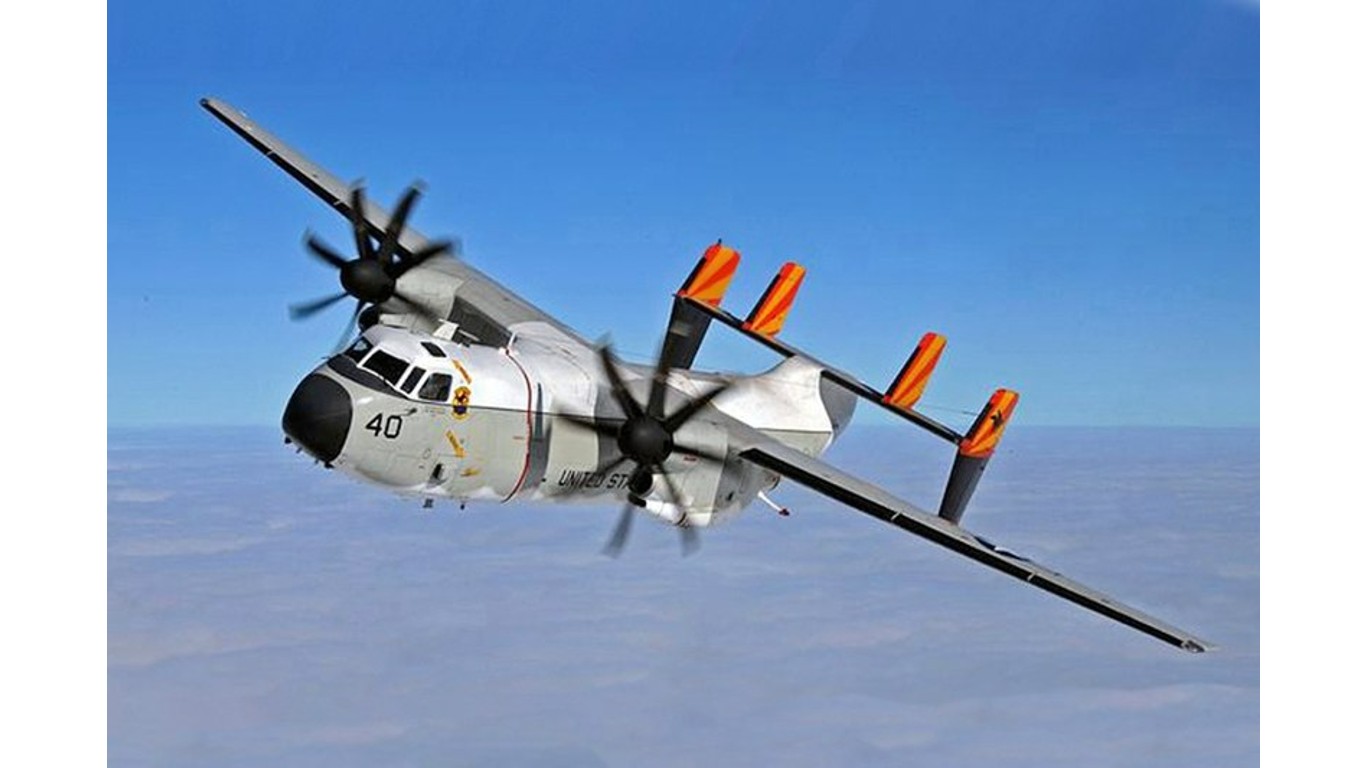
- Type: Carrier-based cargo / transport aircraft
- Year introduced: 1967
- Active aircraft: 26
- Top speed: 331 mph
- Armament: N/A
8. MH-53E Pave Low
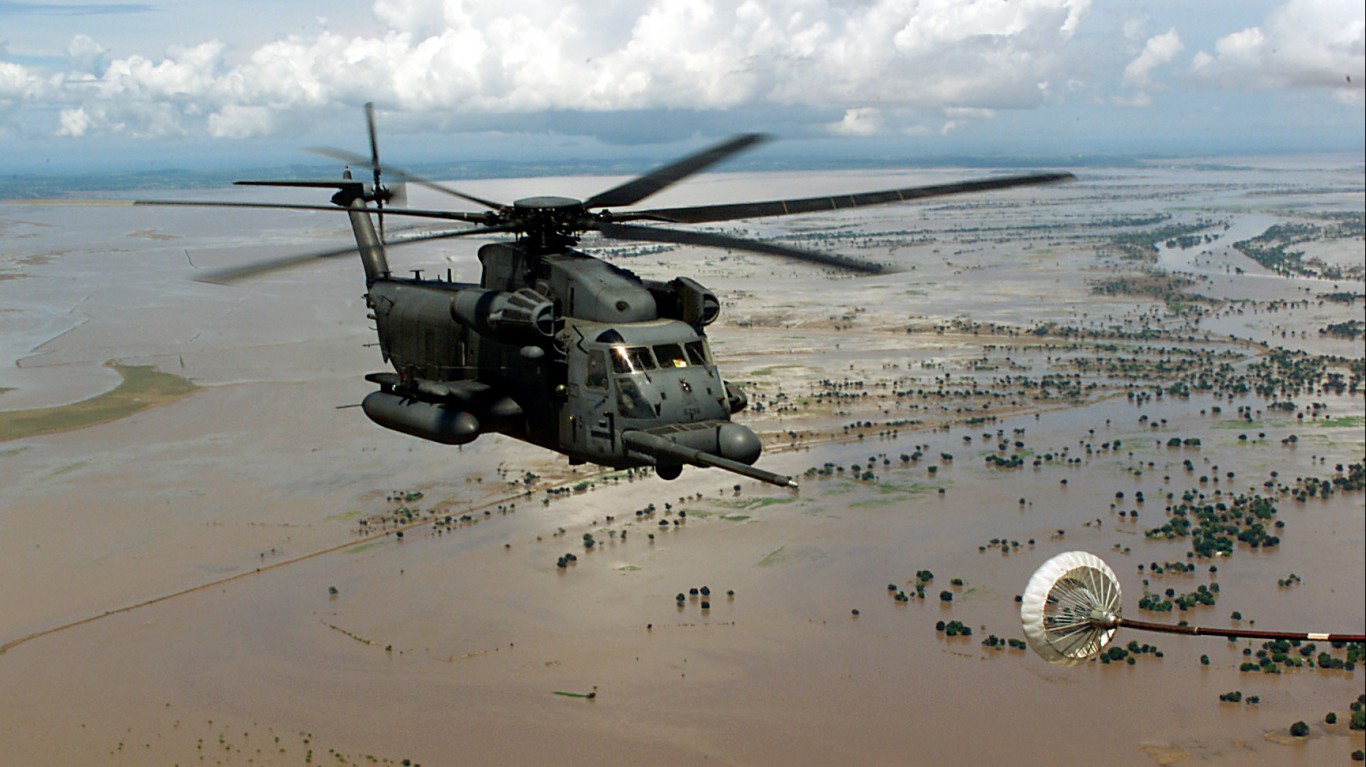
- Type: Multirole transport helicopter
- Year introduced: 1981
- Active aircraft: 26
- Top speed: 196 mph
- Armament: 7.62mm M134 miniguns, 12.7mm Browning M2 heavy machine guns
7. MV-22 Osprey
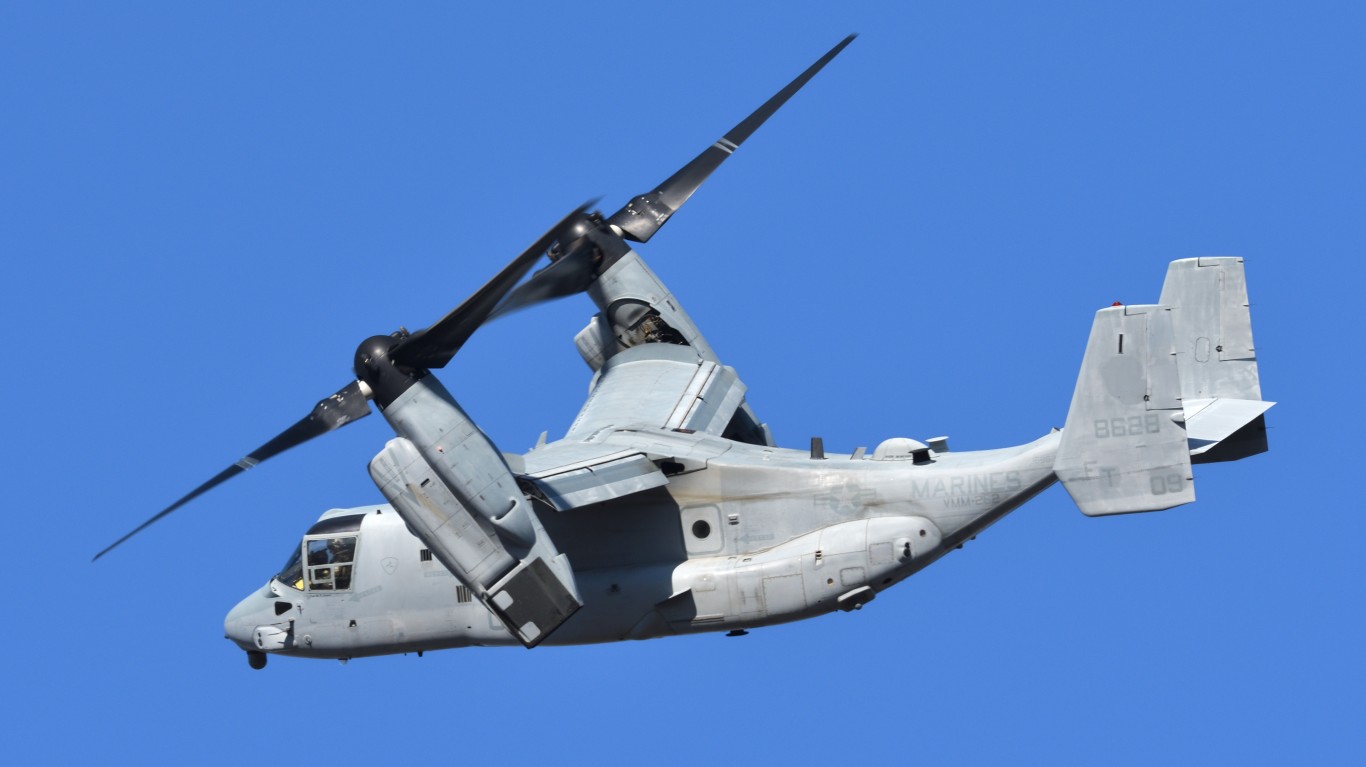
- Type: Tilt Rotor VTOL aircraft
- Year introduced: 2007
- Active aircraft: 27
- Top speed: 316 mph
- Armament: 7.62mm machine guns, 12.7mm machine guns
6. F-35C Lightning II
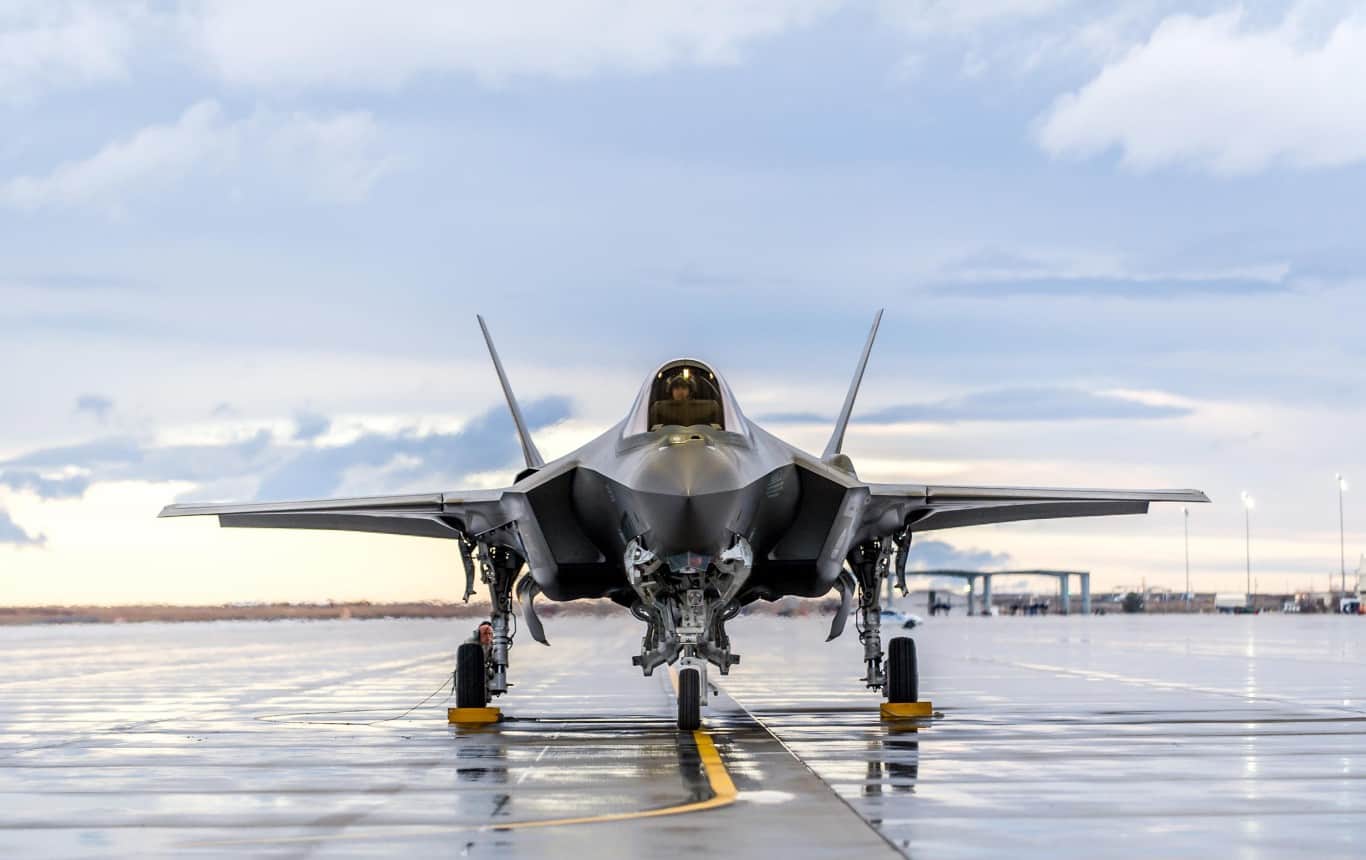
- Type: Multirole fifth generation strike fighter aircraft
- Year introduced: 2016
- Active aircraft: 30
- Top speed: 1,199 mph
- Armament: 25mm GAU-12/U cannon in external pod, Sidewinder missiles, Paveway guided bombs, Rockeye II bombs, Brimstone missiles, Storm Shadow missiles, drop bombs
5. E-2 Hawkeye
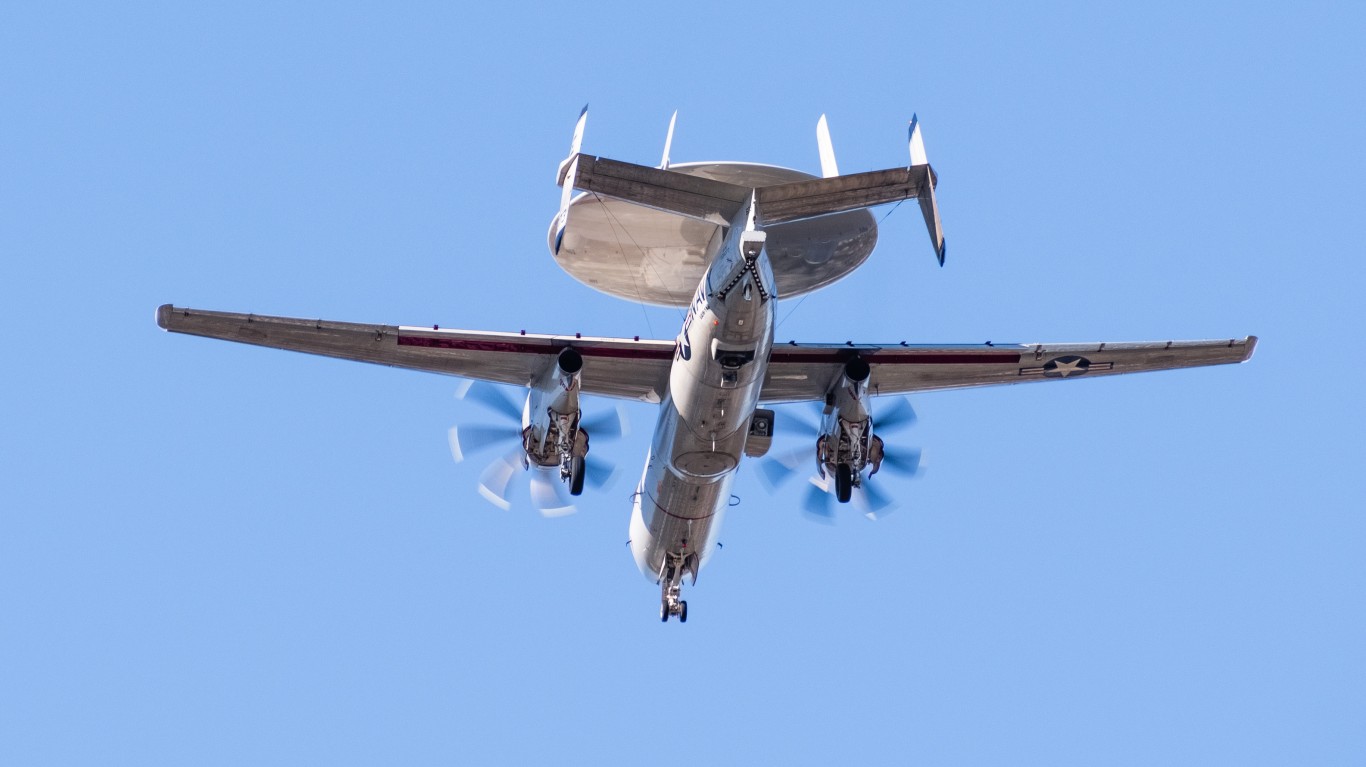
- Type: Airborne command post
- Year introduced: 1964
- Active aircraft: 83
- Top speed: 375 mph
- Armament: N/A
4. P-8A Poseidon
- Type: Multi-mission reconnaissance, anti-submarine aircraft
- Year introduced: 2013
- Active aircraft: 118
- Top speed: 490 mph
- Armament: Torpedoes, naval mines, air-to-surface missiles, anti-ship missiles, stand-off cruise missiles
3. EA-18G Growler
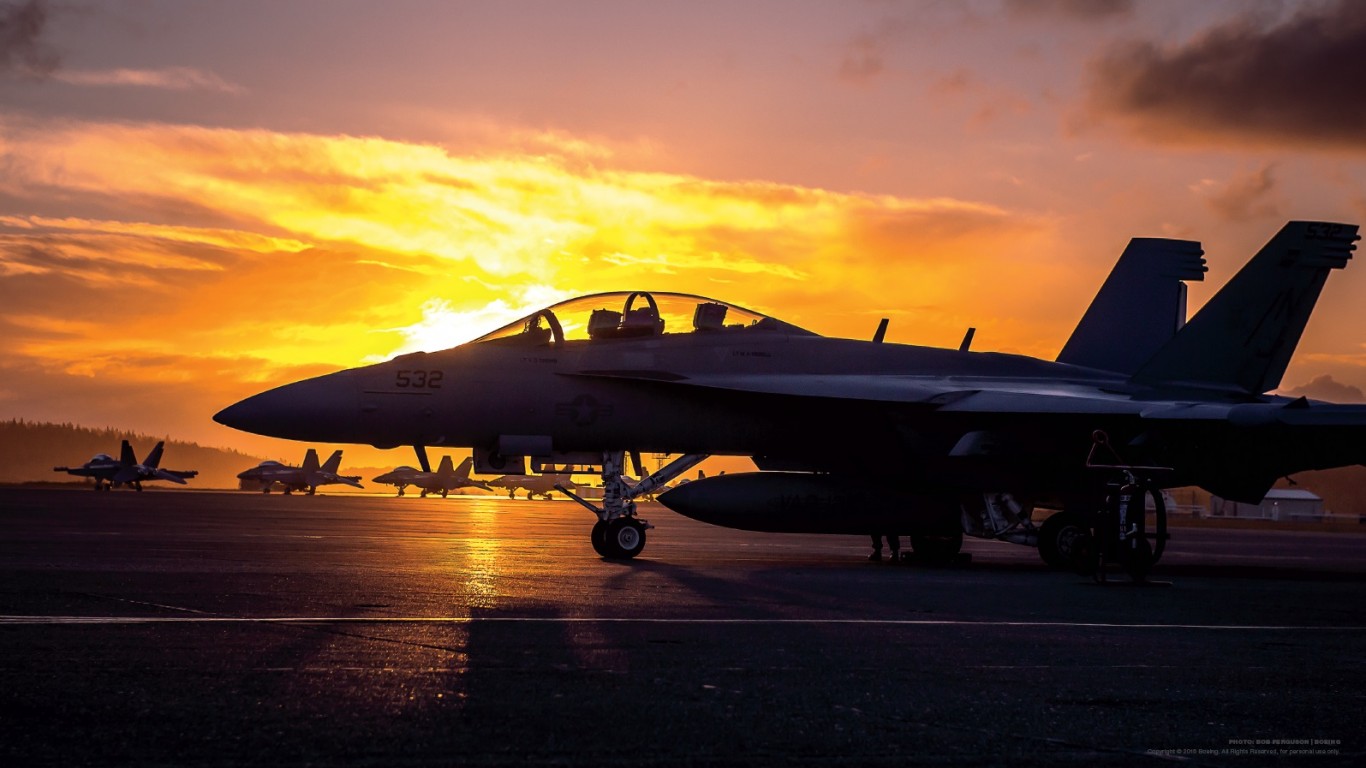
- Type: Carrier-based electronic warfare aircraft
- Year introduced: 2009
- Active aircraft: 153
- Top speed: 1,181 mph
- Armament: Detection pods, high band jamming pods, low band jamming pods, AN/ASQ-228 ATFLIR, SHARP, Harm missiles, AMRAAM missiles, Joint stand-off weapons
2. F/A-18 Super Hornet
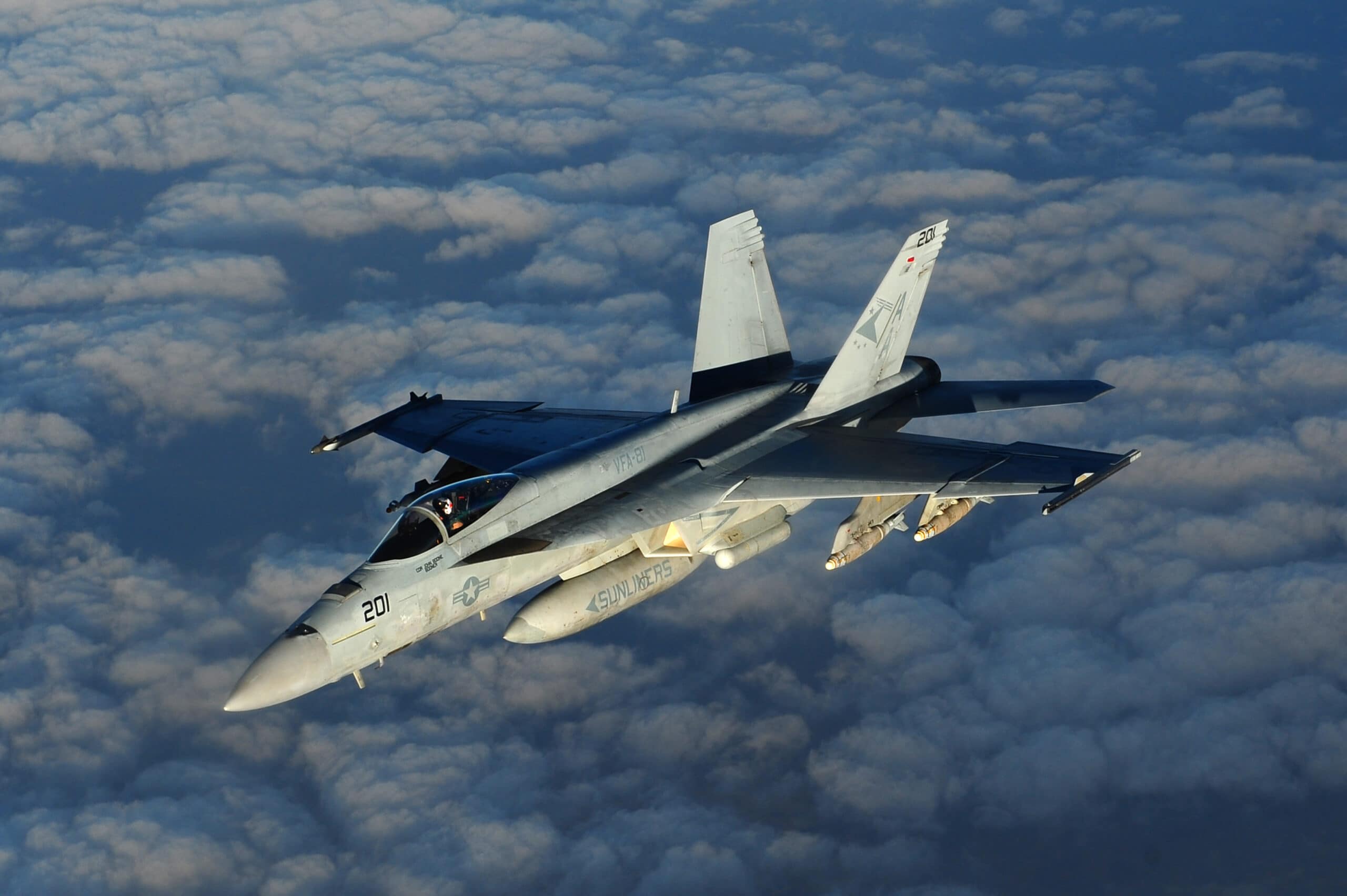
- Type: Carrier-based strike fighter aircraft
- Year introduced: 1999
- Active aircraft: 421
- Top speed: 1,187 mph
- Armament: 20mm M61A1 Vulcan automatic cannon, Sidewinder missiles, AMRAAM missiles, Harpoon missiles, HARM missiles, Maverick missiles, joint direct attack munitions, Rockeye II bombs, general purpose bombs
1. S-70 Black Hawk
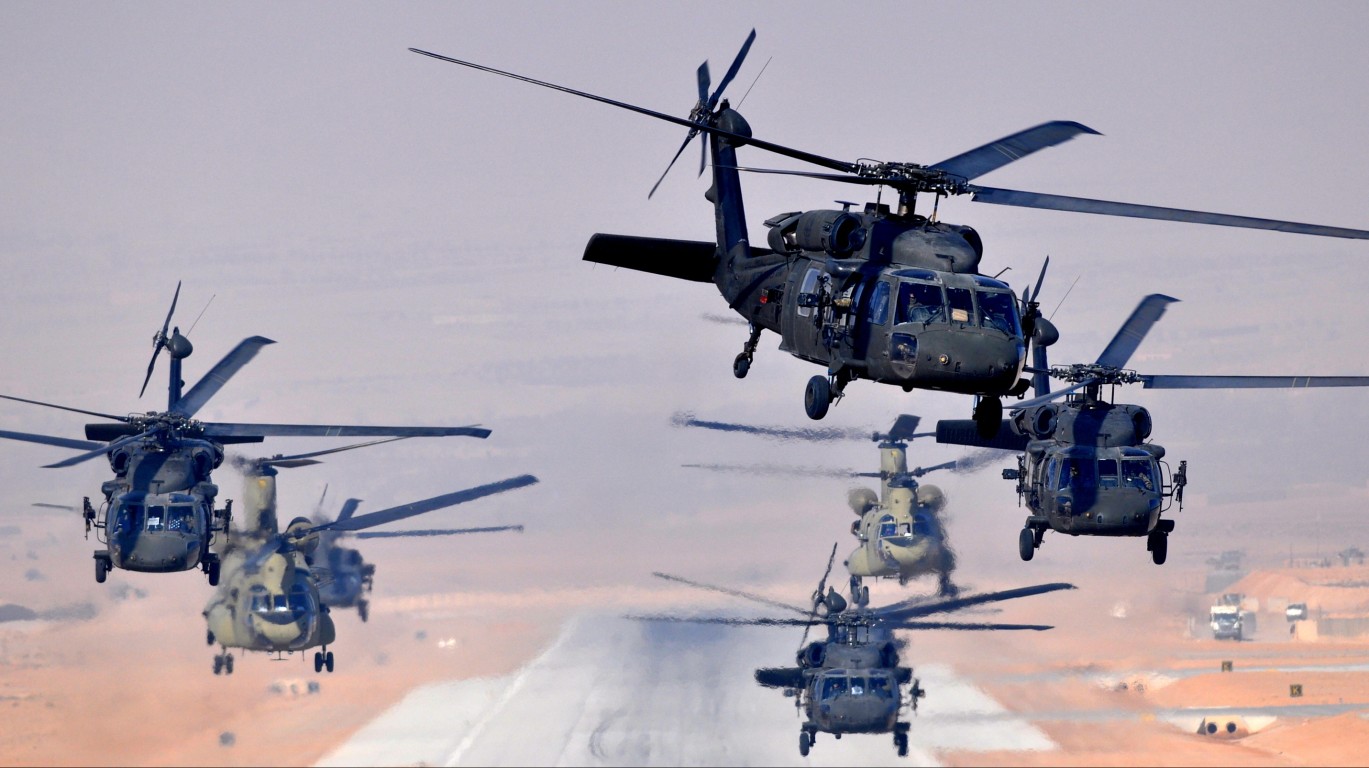
- Type: Medium-lift multi-mission helicopter
- Year introduced: 1979
- Active aircraft: 454
- Top speed: 183 mph
- Armament: 7.62mm machine guns, Hellfire missiles, 12.7mm gatling guns, M134 gatling guns, rocket pods, 30mm chain gun
It’s Your Money, Your Future—Own It (sponsor)
Retirement can be daunting, but it doesn’t need to be.
Imagine having an expert in your corner to help you with your financial goals. Someone to help you determine if you’re ahead, behind, or right on track. With SmartAsset, that’s not just a dream—it’s reality. This free tool connects you with pre-screened financial advisors who work in your best interests. It’s quick, it’s easy, so take the leap today and start planning smarter!
Don’t waste another minute; get started right here and help your retirement dreams become a retirement reality.
Thank you for reading! Have some feedback for us?
Contact the 24/7 Wall St. editorial team.
